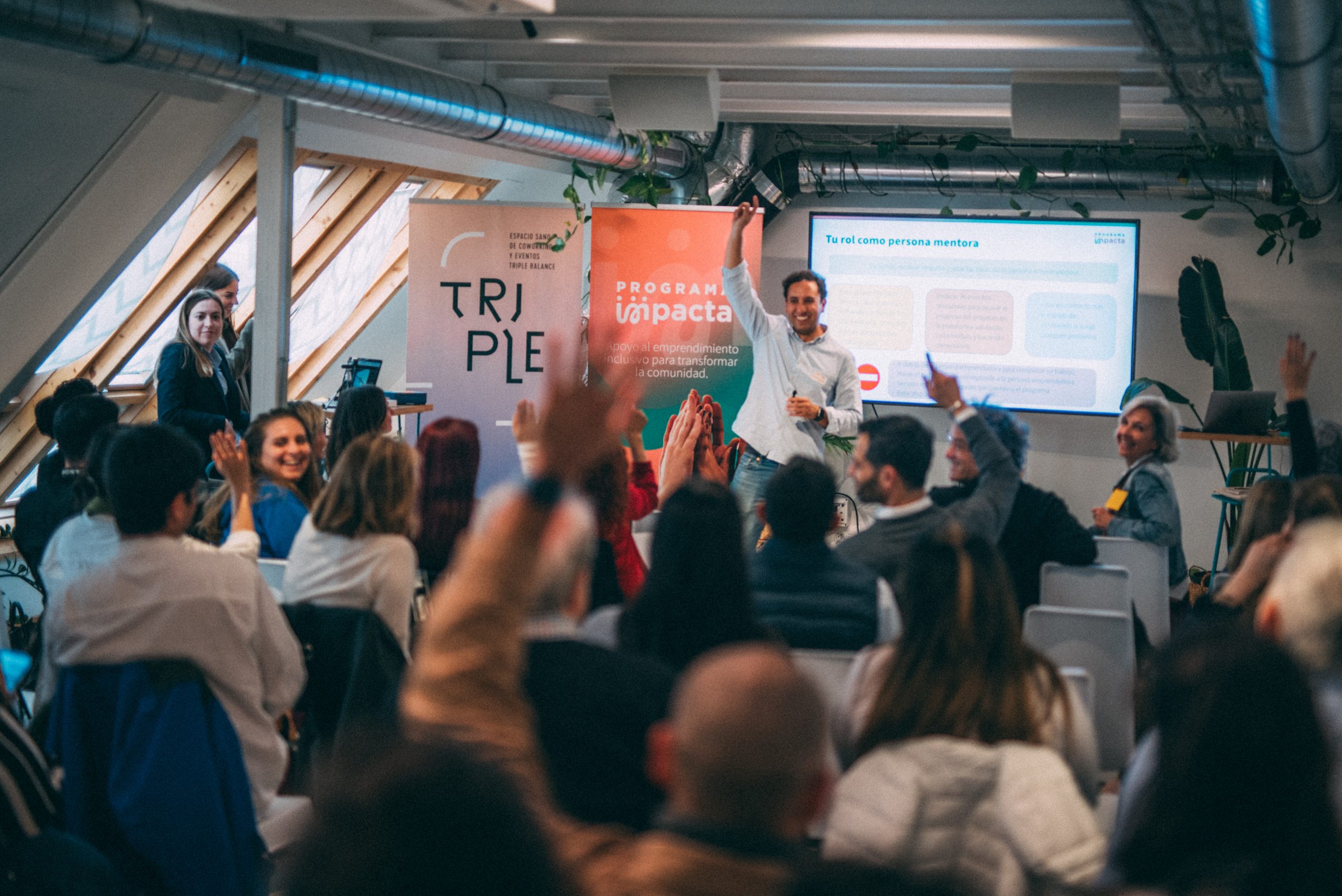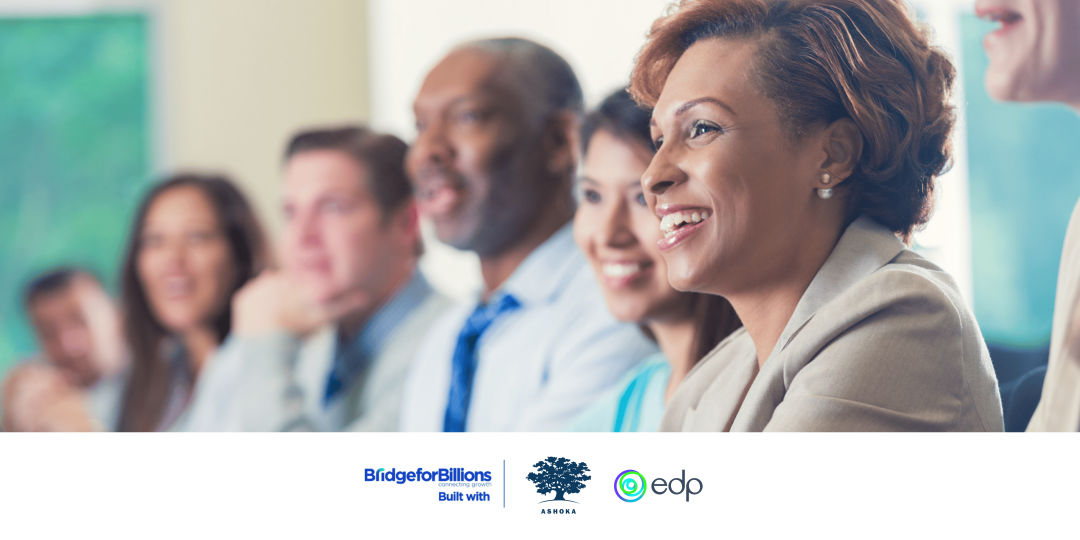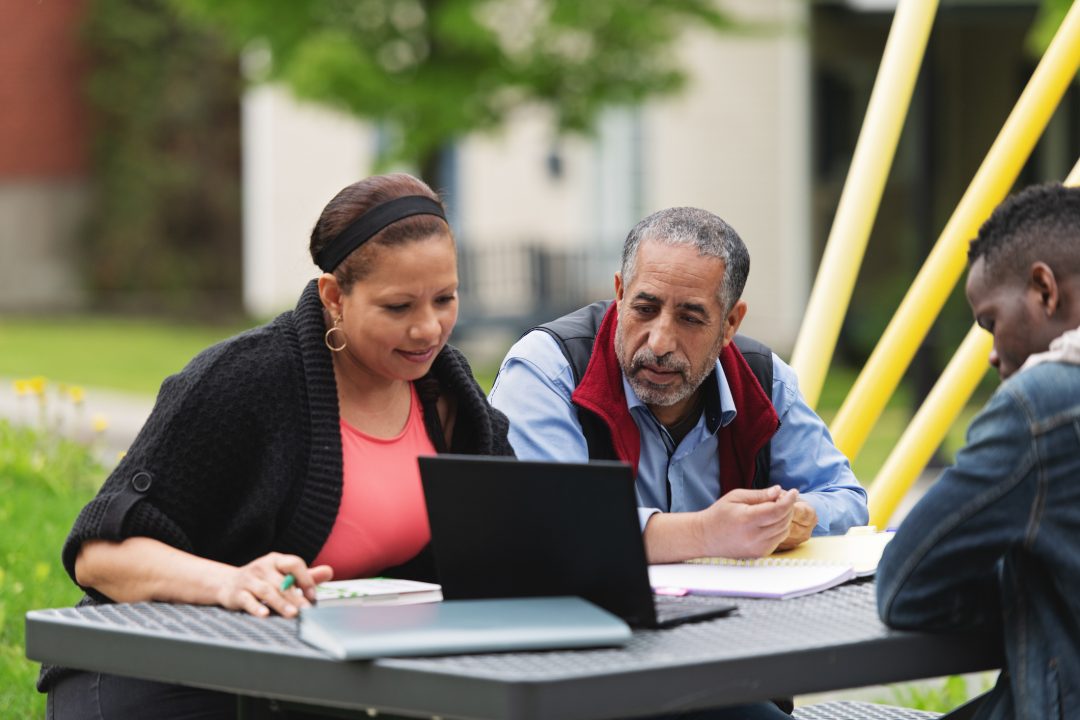Whether you’re involved in social impact or you’re just here out of curiosity, here’s a list of 5 inspiring books that can help you learn more about sustainable and inclusive economy.
These authors have somehow inspired our work at Bridge for Billions. All of them have published innovative ideas that redefine what creating an equitable and inclusive economy means today.
#1 Out of Poverty, by Paul Polak
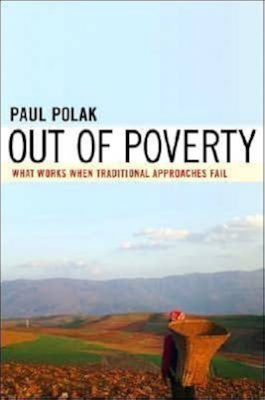
The subtitle of this book, “What Works When Traditional Approaches Fail,” already captures its focus.
Drawing on 25 years of experience, Paul Polak emphasizes using entrepreneurial methods to boost the income of rural farmers in Asia and Africa. He argues that poverty alleviation should start from agriculture improvement by providing affordable irrigation, seeds, and market access.
Polak’s organization, iDE, has successfully implemented low-cost solutions like treadle pumps, significantly raising farmers’ incomes and offering a scalable model for international development.
Polak is critical of the top-down approaches common in international development, favoring practical, money-making products for the poor. He advocates designing for the “other 90 percent” of the world’s population, focusing on “extreme affordability“—products that are cheap, pay for themselves quickly, and can reach millions. “Don’t bother” with anything else, he advises.
“Businesses can generate positive returns for investors by serving consumers in base-of-the-pyramid populations with average household income in the range of $1–$2 per day”
#2 The Blue Sweater, by Jacqueline Novogratz
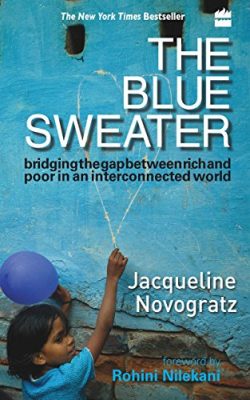
Jacqueline Novogratz is an American entrepreneur and author. She founded Acumen, a nonprofit global venture capital fund whose goal is to use entrepreneurial approaches to address global poverty.
She left a career in international banking to spend her life on a quest to understand global poverty and find powerful new ways of tackling it.
From her first stumbling efforts as a young idealist venturing forth in Africa to the creation of the trailblazing organization she runs today, Novogratz tells gripping stories with unforgettable characters.
This book is about how to pioneer impact investing. She shows how traditional charity often fails, but how a new form of philanthropic investing called “patient capital” can help make people self-sufficient and change millions of lives.
“I have seen that traditional approaches to charity and aid don’t solve problems of poverty. In fact, too often they create dependence.”
#3 A World Without Poverty, by Muhammad Yunus
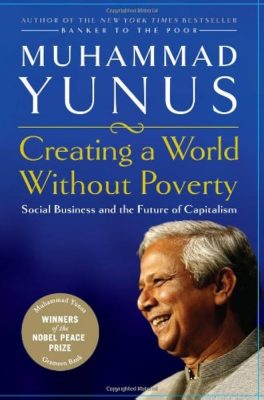 Muhammad Yunus is a Bangladeshi social entrepreneur, banker, economist and civil society leader who was awarded the Nobel Peace Prize in 2007 for founding the Grameen Bank and pioneering the concepts of microcredit.
Muhammad Yunus is a Bangladeshi social entrepreneur, banker, economist and civil society leader who was awarded the Nobel Peace Prize in 2007 for founding the Grameen Bank and pioneering the concepts of microcredit.
His main tool for alleviating the world’s ills is social business too, which he defines as financially sustainable but non-dividend- paying enterprises established to solve social and environmental problems.
He believes that social businesses would encourage more people to give back – many would find establishing and working in a social business more attractive than working for a charity.
One of Yunus’ most interesting proposals is his concept of a social stock market, where socially minded investors would buy and sell shares of social businesses. He thinks the price of the shares will rise when evidence of program cost effectiveness becomes available, and envisions a Social Dow Jones Index, which would reflect the share values of some of the world’s most broadly representative social businesses.
“In my experience, poor people are the world’s greatest entrepreneurs. Every day, they must innovate in order to survive. They remain poor because they do not have the opportunities to turn their creativity into sustainable income.”
#4 Capital in the Twenty-First Century, by Thomas Piketty
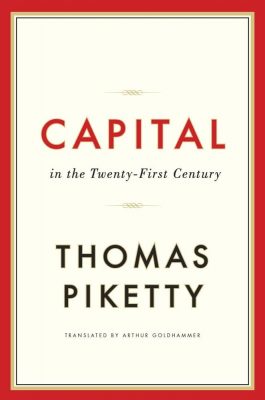 Piketty is a French economist who focuses on public economics, in particular income and wealth inequality.
Piketty is a French economist who focuses on public economics, in particular income and wealth inequality.
In this book he explores the big forces behind how wealth is gathered and shared. Piketty looks at data from 20 countries, going back to the 1700s, to find important patterns about wealth and inequality.
He argues that while modern economic growth has prevented extreme inequalities, the basic structures of wealth and inequality haven’t changed as much as people thought after World War II.
This author warns that if the returns on wealth keep growing faster than the economy, it could lead to severe inequality, but he also believes that political action can help reduce this problem and promote inclusive economy.
Market forces and capitalism by themselves aren’t sufficient to ensure the common good and to limit the concentration of wealth at levels that are compatible with democratic ideals.
Less Is More: How Degrowth Will Save the World, by Jason Hickel
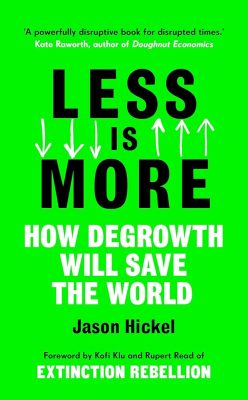 Jason Hickel is an economic anthropologist who lectures in Goldsmiths University of London. He is one of the most articulate, and imaginative contributors to the question of development and sustainability who regularly challenges economic orthodoxy, inequality and the official narrative of poverty in the global South.
Jason Hickel is an economic anthropologist who lectures in Goldsmiths University of London. He is one of the most articulate, and imaginative contributors to the question of development and sustainability who regularly challenges economic orthodoxy, inequality and the official narrative of poverty in the global South.
In Less is More, Hickel explores how capitalism, inequality, and environmental exploitation are intertwined, driven by a misguided focus on growth for its own sake. The book offers a clear solution to the climate crisis and extreme inequality that have worsened since World War II.
Hickel argues that economic growth should not be an end in itself but a means to achieve human well-being, such as health, education, and secure futures.
He advocates for “degrowth,” which involves reducing resource use, energy demand, and emissions, particularly in wealthy nations, while improving well-being. Contrary to popular belief, degrowth isn’t about lowering living standards but reorganizing the economy to prioritize human prosperity within planetary limits.
If your economy requires people to produce and consume things they don’t need or even want, and to do more of it each year than the year before, just in order to keep the whole edifice from collapsing, then you need a different economy.
These are all valuable and very interesting readings for all those who want to deepen their knowledge. Inclusive economy and sustainable growth models are possible – there’s a lot of literature already there.
Enjoy!

